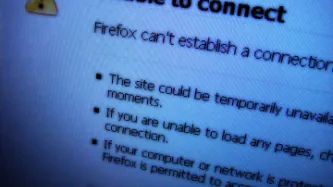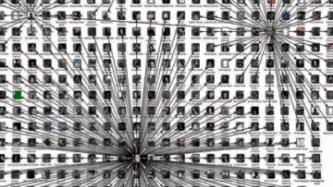Search
Content type: News & Analysis
The following is an excerpt from an op-ed that appeared in the Daily Telegraph written by Carly Nyst, Legal Director of Privacy International:
One of the most shocking discoveries from Edward Snowden's disclosures was that GCHQ, the British intelligence agency, is tapping undersea cables to harvest the communications of people from all around the world. This top-secret programme, nicknamed Tempora, sucks up petabytes of data from tapped cables off the coast of Cornwall and is capable…
Content type: News & Analysis
Despite having over three months to introduce legislation responding to the Court of Justice of the European Union striking down the Data Retention Directive , an 'emergency' surveillance bill is being rammed through Parliament this week.
Not only does the Data Retention and Investigatory Powers Bill (DRIP) fail to address the privacy concerns laid out in the Court's judgment, it also drastically expands spying powers of the State. Worringly, just this afternoon, the fast track…
Content type: News & Analysis
From Monday 14 to Friday 18 July, the British intelligence agencies and the Ministers responsible for them will be under the spotlight in an historic case to determine whether GCHQ's mass communications surveillance activities are a violation of Britain's human rights obligations.
Privacy International, along with Amnesty International, Liberty, the American Civil Liberties Union, Pakistani organisation Bytes for All and others, have brought the case before the Investigatory Powers Tribunal (…
Content type: News & Analysis
We have learnt a lot in the last year about the dirty games GCHQ and NSA are playing to infiltrate the networks, tools and technologies we all use to communicate. This includes forcing companies to handover their customers’ data under secret orders, and secretly tapping fibre optic cablesbetween the same companies’ data centers.
Not content with that, we know now GCHQ are targeting companies systems administrators, exploiting the routers and switches in their networks to…
Content type: Press release
Britain’s top counter-terrorism official has been forced to reveal a secret Government policy justifying the mass surveillance of every Facebook, Twitter, Youtube and Google user in the UK.
This disturbing policy was made public due to a legal challenge brought by Privacy International, Liberty, Amnesty International, the American Civil Liberties Union, Pakistani organisation Bytes for All, and five other national civil liberties organisations[fn]Canadian Civil Liberties…
Content type: News & Analysis
The following is an excerpt from an Op-Ed written in the New Zealand Herald by Privacy International's Legal Officer Anna Crowe:
Since the release of documents by Edward Snowden nearly a year ago, New Zealand has often been seen as a passive participant in the Five Eyes intelligence-sharing alliance, not unlike a good kid hanging out with the wrong crowd.
However, Snowden documents released last month and the news that New Zealand appears to be sharing intelligence…
Content type: News & Analysis
While the initial disclosures by Edward Snowden revealed how US authorities are conducting mass surveillance on the world's communications, further reporting by the Guardian newspaper uncovered that UK intelligence services were just as involved in this global spying apparatus. Faced with the prospect of further public scrutiny and accountability, the UK Government gave the Guardian newspaper an ultimatum: hand over the classified documents or destroy them.
The Guardian decided that having the…
Content type: Press release
Privacy International today filed a legal complaint demanding an end to the unlawful hacking being carried out by GCHQ which, in partnership with the NSA, is infecting potentially millions of computer and mobile devices around the world with malicious software that gives them the ability to sweep up reams of content, switch on users' microphones or cameras, listen to their phone calls and track their locations.
The complaint, filed in the UK’s Investigatory Powers Tribunal, is the…
Content type: Long Read
Today, Privacy International lodged a legal challenge to GCHQ's extensive and intrusive hacking of personal computers and devices. Below, we answer a few questions about the law underlying our complaint, and why it matters.
Is hacking legal?
As a result of the Snowden revelations, we have learned that GCHQ, often in partnership with the NSA, has been using malicious software to intrude upon our computers and mobile devices.
This type of activity, often called "hacking," is a…
Content type: News & Analysis
After two years of pressing the Government to come clean on what, if anything, they are doing to investigate the potentially illegal export of the spyware FinFisher, a ruling today by the Administrative Court in Privacy International’s favour marks a significant turning point in our long-running campaign to bring more transparency and accountability to the surveillance industry.
The High Court slammed Her Majesty’s Revenue and Customs for not disclosing whether it was investigating…
Content type: News & Analysis
May Day serves as a timely reminder that across their history, intelligence services have targeted trade unions and other organisations working for progressive social change.
Intelligence agencies have sought to justify expanded surveillance capabilities on the basis of pressing national security threats, particularly terrorism; however, as the Snowden revelations have highlighted, intelligence agencies actually often use these capabilities to monitor organisations that promote human…
Content type: News & Analysis
Surveillance companies selling mass and intrusive spy technologies to human rights-abusing governments often are benefitting from the financial and institutional support from their home government, revealing a more closely-linked relationship between the sector and the State than previously believed.
Recent revelations concerning the funding of Hacking Team's surveillance technology with public money highlights the role of states in funding the development of surveillance…
Content type: News & Analysis
Political activist and university lecturer Tadesse Kersmo believed that he was free from intrusive surveillance when he was granted political asylum in the UK. Instead, he was likely subject to more surveillance than ever. His case underlines the borderless nature of advanced surveillance technologies and why it represents such a massive problem.
In the past, those fleeing conflict or persecution could reasonably expect a degree of respite if they managed to escape their circumstances.…
Content type: News & Analysis
On Monday, Privacy International submitted a dossier to the National Cyber Crime Unit of the National Crime Agency on behalf of Ethiopian political refugee Tadesse Kersmo, asking them to investigate the potentially unlawful interception of Tadesse's communications, as well as the role a British company played in developing and exporting the invasive commercial surveillance software called FinSpy that was found on Tadesse's computer.
Here, we address some of…
Content type: Press release
In response to the ruling against David Miranda over his detention at Heathrow, Privacy International Executive Director Dr. Gus Hosein said:
Schedule 7 of the Terrorism Act of 2000 is a law intended to fight terrorism, and was not drafted to target people like David Miranda. In this instance however the government used it to seize the devices of journalists to intimidate and obstruct the reporting of mass and unlawful surveillance practices of the British government. To equate journalism…
Content type: News & Analysis
In the ongoing story about the possible surveillance of the Garda Siochana Ombudsman Commission in Ireland, a number of new details have emerged from Verrimus, the security consultancy agency tasked with investigating the spying. A recent Irish Independent report levelled a number of criticisms at Verrimus, saying that Verrimus in fact detected their own UK phones during their sweep and that they erroneously claimed this to be evidence of a UK IMSI Catcher.
In response to the Independent’s…
Content type: Press release
After challenging HMRC's blanket refusal to release information about the potentially unlawful export of Gamma International's FinFisher surveillance technology, the court has said that the case should proceed to trial and the grounds of Privacy International's challenge are of public importance.
Privacy International in February filed for judicial review of a decision of HMRC, the body responsible for enforcing export regulations, claiming the department is acting unlawfully in its refusal to…
Content type: News & Analysis
The current legal framework governing intelligence activities in the UK is unfit for purpose in the modern digital era, and reform is urgently needed.
With this in mind, today Privacy International responded to the Intelligence and Security Committee’s call for evidence, addressing the question, “Whether the legal framework which governs the security and intelligence agencies’ access to the content of private communications is ‘fit for purpose’, given the developments in information technology…
Content type: News & Analysis
The latest Snowden document revelation, which shows how GCHQ and the NSA are conducting broad, real-time monitoring of YouTube, Facebook, and Blogger using a program called "Squeaky Dolphin," is the most recent demonstration of the immense interception capabilities of intelligence services.
Despite the program's cute name, "Squeaky Dolphin" is shocking in its ability to intercept raw data, which includes sensitive personal and location information, and keep tabs on people across the world who…
Content type: News & Analysis
Big data consists mainly of data that is openly available, created and stored. It includes public sector data such as national health statistics, procurement and budgetary information, and transport and infrastructure data. While big data may carry benefits for development initiatives, it also carries serious risks, which are often ignored. In pursuit of the promised social benefits that big data may bring, it is critical that fundamental human rights and ethical values are not cast aside.…
Content type: News & Analysis
Privacy International's partner organisation, Bytes for All, has filed a complaint against the Government, decrying the human rights violations inherent in such extensive surveillance and demonstrating how the UK's mass surveillance operations and its policies have a disproportionate impact on those who live outside the country.
Bytes for All, a Pakistan-based human rights organization, filed its complaint in the UK Investigatory Powers Tribunal (IPT), the same venue in which Privacy…
Content type: News & Analysis
UK parliamentary select committees are charged with overseeing the work of government in relation to particular topical issues or the work of particular departments. When it comes to UK Government policy on arms, it’s the Committees on Arms Export Controls (CAEC) that's responsible: a conglomeration of four select committees made up of serving Members of Parliament that collects evidence and conducts an inquiry into developments in export control policy and the preceding years’ exports of…
Content type: News & Analysis
New technologies may hold great benefits for the developing world, but without strong legal frameworks ensuring that rights are adequately protected, they pose serious threats to populations they are supposed to empower.
This is never more evident than with the rapid and widespread implementation of biometric technology. Whilst concerns and challenges are seen in both developed and developing countries when it comes to biometrics, for the latter they are more acute due the absence of laws or…
Content type: News & Analysis
Update:
After an initial discussion with technical and government experts involved in drafting and negotiating the new controls on “intrusion software”, some of our initial questions have been clarified. To read what they had to say, go here.
One of the major dangers of imposing export controls on surveillance systems is the risk of overreach. While you want the scope of the systems being controlled and the language to be wide enough to catch the targeted product and its…
Content type: News & Analysis
A strong, unified voice from the tech industry is absolutely essential to reforming the mass and intrusive surveillance programs being run by the Five Eyes, so we welcome today's statement from AOL, Apple, Google, Facebook, LinkedIn, Microsoft, Twitter, and Yahoo.
Companies have obligations to respect human rights and not be complicit in mass surveillance. Given what has been publicly revealed over the past six months, we must know for certain that the companies we entrust with our information…
Content type: News & Analysis
The proliferation of private companies across the world developing, selling and exporting surveillance systems used to violate human rights and facilitate internal repression has been largely due to the lack of any meaningful regulation.
But a huge step toward finally regulating this billion-dollar industry was taken this week, when on Wednesday night the 41 countries that make up the Wassenaar Arrangement, the key international instrument that imposes controls on the export of…
Content type: Long Read
The recent revelations, made possible by NSA-whistleblower Edward Snowden, of the reach and scope of global surveillance practices have prompted a fundamental re- examination of the role of intelligence services in conducting coordinated cross-border surveillance.
The Five Eyes alliance of States – comprised of the United States National Security Agency (NSA), the United Kingdom’s Government Communications Headquarters (GCHQ), Canada’s Communications Security Establishment Canada (CSEC), the…
Content type: Press release
Privacy International today has filed a complaint with the Australian Inspector-General of Intelligence Security, calling for an immediate investigation into deeply troubling reports that the Australian intelligence services offered to violate the privacy rights of millions of citizens by handing over bulk metadata to its Five Eye partners.
According to the leaked Five Eyes memo published in the Guardian on 2 December, the Australian Signals Directorate, during a meeting…
Content type: Report
The recent revelations, made possible by NSA-whistleblower Edward Snowden, of the reach and scope of global surveillance practices have prompted a fundamental re-examination of the role of intelligence services in conducting coordinated cross-border surveillance.
The Five Eyes alliance of States – comprised of the United States National Security Agency (NSA), the United Kingdom’s Government Communications Headquarters (GCHQ), Canada’s Communications Security Establishment Canada (CSEC), the…
Content type: News & Analysis
With the launch of the "Eyes Wide Open" project, Privacy International has put together a fact sheet about the secretive Five Eyes alliance. Consider this a guide to the secret surveillance alliance that has infiltrated every aspect of the modern global communications system.
Beginning in 1946, an alliance of five English-speaking countries (the US, the UK, Australia, Canada and New Zealand) developed a series of bilateral agreements over more than a decade that became known as the UKUSA…
























